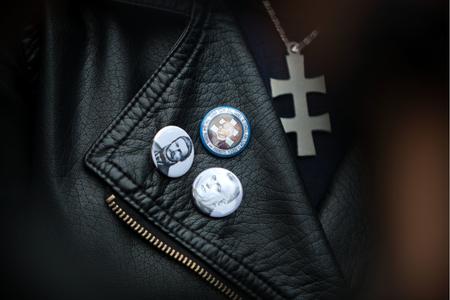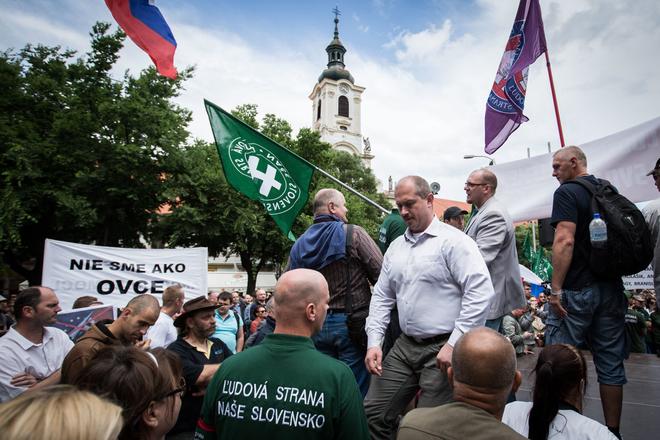In early 2020, Marian Kotleba was the leader of the opposition when it came to opinion polls. Observers saw his People’s Party – Our Slovakia (LSNS) as one that would decide whether the weakening-but-still-strongest Smer would be able to put together the ruling coalition.
“Robert Fico’s main priority will be to stay in power at any price,” political analyst Pavol Baboš of the Comenius University’s school of political science said in November 2019, when Kotleba’s party polled around 12 percent. “If the only option that allows him to do so is a silent or an explicit cooperation with L'SNS, I believe he will go for it and convince his party that it is necessary.”
Election results have shown Kotleba seems to have exhausted his political potential. He has nowhere to look for new voters, and other parties do not want to cooperate with him.
Even though his vote-count went slightly up since the past election, from just over 209,000 to over 229,000, Kotleba gained 7,9 percent of the vote in this election, very similar to the 2016 result when LSNS received 8.04 percent.
Devoted voters
We do not have more detailed analyses of Kotleba’s voters yet. The partial information, available from the “secret polls” of the AKO and Focus polling agencies in the two weeks running up to the election, show that L'SNS has the most devoted voters among all political parties who were eligible to make it to the parliament.

As many as 68 percent of the voters declared one week before the election that they would not change their decision, under any circumstances, before the election. No other party enjoyed a higher number in this category.
On the other hand, voters of other parties were the most unwilling to switch allegiance for Kotleba.
When asked whom they would be willing to vote for if they could vote for two parties, only 2.7 percent of those polled said that L'SNS would be their second choice. Only Most-Híd posted a lower percentage among parliamentary parties, at 1.4 percent.


 Marian Kotleba (white shirt) and his supporters (source: Sme)
Marian Kotleba (white shirt) and his supporters (source: Sme)